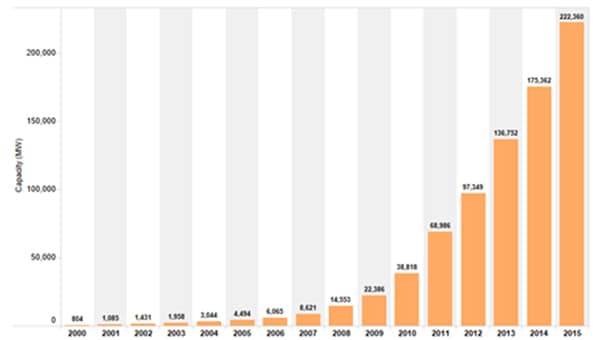If Solar is the Way Forward, Projects will need Financing
World energy demand is forecasted to grow by nearly one-third between 2015 and 2040. A large share of this increase will be from the power sector, and the global demand for electricity is likely to increase by more than70%, leading to a 16% increase in energy-related carbon dioxide (CO2) emissions by 2040.





